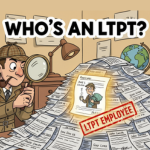Category: Plan Administration
Long-Term, Part-Time Employee Administration
January 15, 2026
Long-term, Part-time employees became eligible for the first time in 2024 for for-profit corporations and in 2025 for nonprofit corporations. 403(b) plan sponsors’ auditors will request backup for LTPT employee identification, eligibility, and their effective opportunity to defer during next year’s audits. This blog will explain the rules and the best practices for employers challenged … Continued
SECURE 2.0: Automatic Enrollment Mandate
November 25, 2025
In Summary Applicability and Exemptions: Effective for plan years after December 31, 2024, new plans established after December 29, 2022, must implement automatic enrollment; however, exemptions apply to “grandfathered” pre-enactment plans, businesses with 10 or fewer employees, companies in business for less than three years, and governmental, church, or SIMPLE plans. Contribution and Escalation Mechanics: … Continued
Catch the Catch-Up Final Regulations Before They Catch You Off-Guard
November 13, 2025
In Summary Mandatory Roth Contributions for High Earners: Effective January 1, 2026, “High Earners” (defined as participants with prior-year FICA wages exceeding $150,000) are required to make all catch-up contributions—including the new “Super Catch-Up” for participants aged 60–63—on a Roth (after-tax) basis. Exclusions and Plan Limitations: The mandate strictly applies to employees with W-2 FICA … Continued
Auditing Merged Assets from Unaudited Retirement Plans
October 01, 2025
In Summary Risk of Tainted Assets: Directly merging plan assets preserves their source classification, creating a risk that previous qualification errors in the merged plan (resulting in “tainted assets”) could affect the audited financial statements of the successor plan. Rollovers Eliminate Risk: The optimal way to avoid tainted assets is by having participants conduct rollovers … Continued
January 1 Plan Mergers and the One-Day Audit Controversy
September 22, 2025
In Summary Final Form 5500 Filing, Asset Distribution, and Legal Title: A plan’s final Form 5500 filing obligation is triggered not by the effective date of termination, but by the complete distribution of all assets. In a merger, the final filing is determined by the date the legal title of the assets transfers to the … Continued
Large Welfare Plans That Use a Trust Have a Financial Statement Audit Requirement
March 28, 2025
In Summary Funded Plans, the Audit Requirement: The single most important factor determining if a large welfare plan needs a CPA audit is its funding status. If a plan uses a separate trust account (such as a 501(c)(9) VEBA) to hold assets or pay benefits—making it “funded”—it must undergo an audit of the entire plan … Continued
Required Minimum Distributions for 401(k) and 403(b) Plans
January 07, 2025
In Summary Understanding the First RMD and Subsequent Deadlines: Your first Required Minimum Distribution (RMD) is due by April 1 of the year after you turn 73 or, if your plan allows, the year you retire (whichever is later). However, 5% owners must begin by 73 regardless of employment. All subsequent RMDs are due by … Continued
The Rules of Engagement for Correcting Inadvertent Benefit Overpayments, or Not!
November 12, 2024
In Summary New IRS Guidance for IBO Flexibility: IRS Notice 2024-77 provides flexibility for inadvertent benefit overpayments (IBOs) from retirement plans. It confirms that employers are permitted, but not required, to seek recoupment of funds paid to a participant by mistake. Choosing Not to Recoup Preserves Rollover Status: If a plan sponsor forgives the overpayment, the … Continued
How to Compute the 15-Year Special Catch-Up for 403(b) Plans
October 15, 2024
How Does the 403(b) Special 15-Year Catch-Up Contribution Work? Where have you worked, for how long, and how much have you contributed to the 403(b) plan? These are all questions that make up the puzzle pieces necessary to compute each participant’s available 403(b) catch-up. Participants in a 403(b) plan can make an additional contribution once … Continued
The Trouble with True-ups: Make Sure You Budget for the Maximum Match
October 07, 2024
In Summary Understanding the True-Up: A true-up provision ensures employees receive the maximum potential employer match by looking at their total annual contributions against their total annual compensation. This contrasts with a per-paycheck match, which only looks at the contribution made from that specific paycheck. This feature is essential for employees who “front-load” their retirement … Continued









